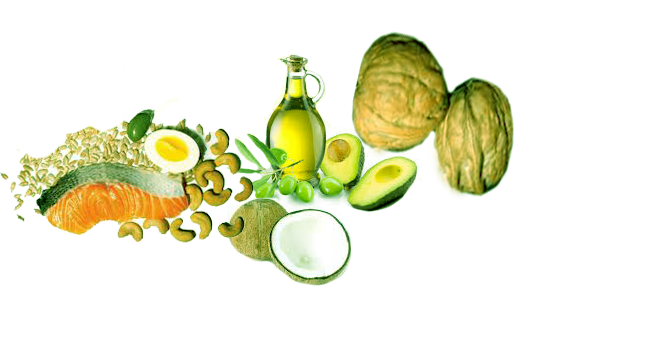
Who doesn't want to beat stress? Actually managing stress is essential for your overall health. Stress can increase the risk of heart attack and other health conditions.
When it comes to
foods, stress management becomes much easier. But some foods also can increase
your stress levels. So you should be a little smarter in choosing foods.
Actually managing
stress with methods like nutritious diet and breathing exercises are very easy,
cost effective and efficient.
The solution?
Before you know the food-based solutions, you need to know what hormones are
responsive for your stress levels.
Hormones and neurotransmitters that affect your stress levels
A number of
hormones are in charge of adding fuel to the fire behind both physical and
mental reactions to stress. Such hormones include Adrenaline, Norepinephrine, Serotonin,
and Cortisol.
Serotonin
A brain chemical,
serotonin plays an important role in your mental and emotional health.
Serotonin influences
your brain cells. And lack of serotonin is linked with depression, anxiety,
panic and anger problems. Serotonin levels
can be increased by foods!
Adrenaline
Also known as the
fight or flight hormone, adrenaline is produced by the adrenal glands after
receiving a message from your brain that a stressful situation has happened.
Both adrenaline and
norepinephrine increase your stress levels, heat rate, and surge of energy to
run away from the dangerous situation.
Cortisol
Adrenal glands
release a surge of cortisol in response to stressful situations. This hormone
increases your feelings of stress as well as blood sugar levels. Cortisol also
negatively influences your immune and digestive systems.
How to
fight against stress with foods
Foods
can help manage stress in a number of ways. Vitamin C, carbs, amino acid,
vitamin B, tryptophan, and Omega-3 fatty acids in foods are nice in term of stress
management.
These nutrients help cut stress hormones like cortisol and
adrenaline while increase useful brain chemical serotonin.
Fatty fish
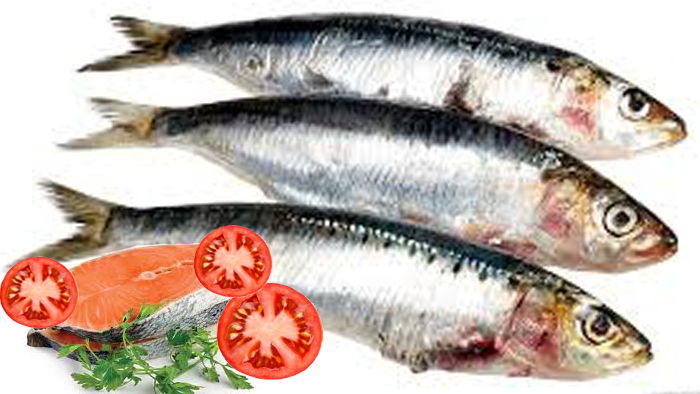
Fatty fish like
salmon, mackerel, sardines and tuna are rich in omega-3 fatty acids. Studies
have shown that omega 3 fats improve ability to manage stress and boost your
mood.
Eating fatty fish
you can prevent surges in stress hormones and protect against heart disease,
depression, and other health conditions.
What is the recommended amount of fish to
eat?
It is recommended
that you should aim to eat 3 ounces of fatty fish twice a week to control
stress as well as heart health.
Fresh fruits and vegetables rich in vitamin C
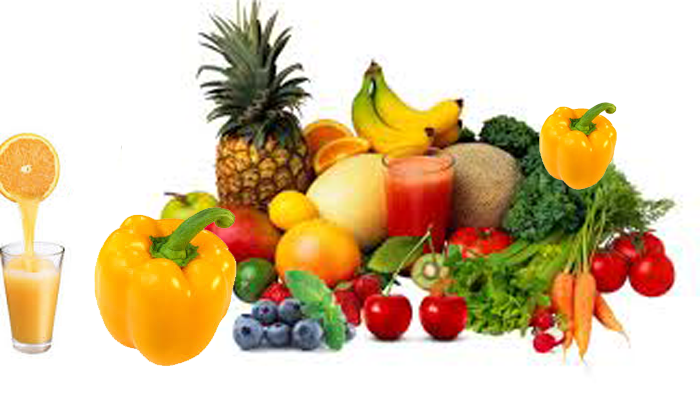
Vitamin C helps you
lower cortisol, blood pressure, and effects of stress.
Studies on both man
and rats showed that vitamin C is effective in stress hormones like cortisol.
How much vitamin
C you need
For adults, the
recommended dose is 65 to 90 mg a day, and upper limit is 2,000 mg a day.
Children aged 1 day to 8 year need 15 to 50 mg vitamin C daily.
Best sources of vitamin C
Following are among
the foods that contain good amount of vitamin C:
- Peppers (Yellow Bell Peppers) - Per large pepper (186g) contains 341.3mg (569% DV)
- Guavas - Per fruit (55g) contains 125.6mg (209% DV)
- Dark Green Leafy Vegetables (Kale) - Per cup chopped (67g) contains 80.4mg (134% DV)
- Kiwifruit (Green) - Per fruit (69g) contains 64mg (107% DV)
- Tomatoes (Cooked) - Per 2 tomatoes (246g) contains 56.1mg (93% DV)
- Citrus Fruits (Oranges) - Per orange (131g) contains 69.7mg (116% DV)
Green tea for stress management

Green tea contains
an amino acid called l-theanine that can increase serotonin and dopamine
levels.
A recent study
consisting of 42,093 Japanese people found that about 6.6% were victim of
psychological stress. But stress levels were significantly lower among the
green tea drinkers.
The polyphenols in
green tea have anti-depressant like effects that help decrease stress and boost
mood.
Tryptophan rich foods
Tryptophan is an
essential amino acid which is converted into vitamin B3 and serotonin. As I
mentioned earlier, serotonin aids in the regulation of stress, anger,
aggression, mood and sleep.
A study has shown
that people who consume tryptophan become much more pleasant and agreeable.
Best sources of tryptophan
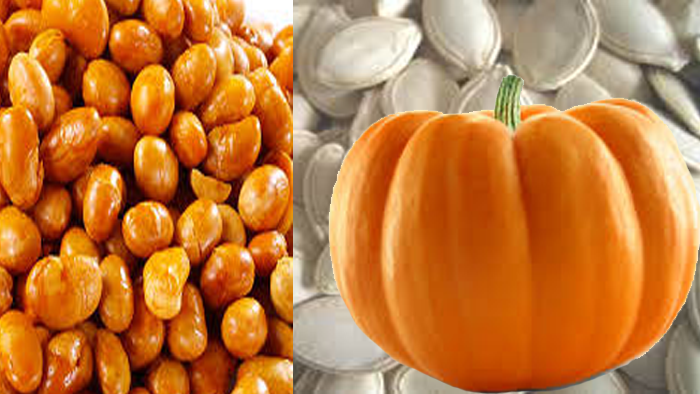
High
tryptophan foods include as following:
- Seeds & Nuts (Pumpkin & Squash Seeds) - Per ounce (28g) contains 161mg (58% RDI)
- Soya Foods (Soybeans, roasted) - Per ounce (28g) contains 161mg (57% RDI)
- Chicken & Turkey (Chicken Breast, cooked) - Per 3oz (85g) contains 343mg (123% RDI)
- Fish (Tuna, cooked) - Per ounce (28g) contains 95mg (34% RDI)
- Beans & Lentils (White Beans, cooked) - Per tablespoon (11g) contains 13mg (5% RDI)
- Eggs (Whole) - Per egg (50g) contains 84mg (30% RDI)
The recommended doses
You
should take 4mg per kilogram of body weight.
Avocados for stress management
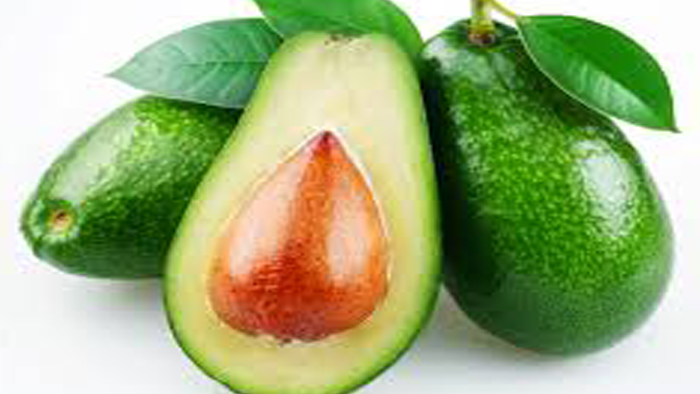
Avocados contain
good amount of potassium and vitamin B. Potassium is great when it comes to
controlling blood pressure and mood.
And vitamin B is essential for healthy nerves and brain cells, vitamin B deficiency may leads to feelings of anxiety.
And vitamin B is essential for healthy nerves and brain cells, vitamin B deficiency may leads to feelings of anxiety.
Half an avocado gives
you more potassium than a banana. One avocado contains 30% of your recommended
daily potassium intake.
Almonds to reduce stress

Vitamin E and B are
rich in almonds. Both of the nutrients are helpful for managing stress.
Just a quarter cup
of almonds intake every day is enough to boost your immune system during times
of stress.
Foods to avoid to control stress
Caffeine: caffeine can increase stress hormone like cortisol in your body.
Drinking a lot of coffee can increase your stress levels. Moreover, caffeine
can cause sleeping problems.
High-fat foods: fatty foods such as meat or cheese thicken
your blood which in turn makes you feel tired and lethargic. And this is a
hinder to reduce stress. Moreover, high-fat meal can increase your risk of
heart attack.
Sugar: carbohydrate is essential for brain to make
more serotonin. But simple carbohydrate like sugar is not a good choice when it comes to
stress management as it can make symptoms of stress worse.
On the other hand,
complex carbs from foods such as pastas, beans, and whole-grain breads are
definitely a good choice.
Conclusion
Fresh foods are essential for stress management but there are some other things you should care about.
You should change
your lifestyle like doing regular physical exercises, having sound sleep, and
taking some sun.




